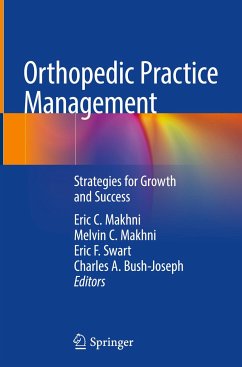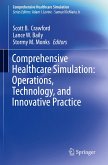This unique resource provides a solid introduction to practice management for orthopedic practitioners-whether employed in a hospital setting, in private practice, or on faculty at a university setting-and it will be especially valuable to all surgeons still in their residency, providing valuable insight into how to best prepare to effectively care for patients. Orthopedists both domestic and international will benefit immensely from its contents, skills that are often overlooked in medical training.
Part one presents the essentials of starting and building a practice, including strategic, personal and legal considerations, partnerships and ancillaries, keys for growth and success, incorporating mid-level providers, and the use of social media. Leadership and management are covered in part two, discussing the management of a private practice and a privademic medical center, recruitment and expansion, outcome collections, the pursuit of a dual degree, and all-important healthcare policy. Additional relevant topics are presented in part three, including surgical training and education, independent medical exams and legal depositions, board certification and maintenance, principles of clinical research, and surgical innovation.
In today's ever-changing healthcare climate, practitioners must know how to deliver the medicine they spent so many years learning and perfecting. Orthopedic Practice Management is the first text dedicated to teaching surgeons the essential non-clinical fundamentals for succeeding in healthcare. No matter what stage of practice you are in-from student to master surgeon-you will find that this book contains invaluable information for achieving success in orthopedics.
Part one presents the essentials of starting and building a practice, including strategic, personal and legal considerations, partnerships and ancillaries, keys for growth and success, incorporating mid-level providers, and the use of social media. Leadership and management are covered in part two, discussing the management of a private practice and a privademic medical center, recruitment and expansion, outcome collections, the pursuit of a dual degree, and all-important healthcare policy. Additional relevant topics are presented in part three, including surgical training and education, independent medical exams and legal depositions, board certification and maintenance, principles of clinical research, and surgical innovation.
In today's ever-changing healthcare climate, practitioners must know how to deliver the medicine they spent so many years learning and perfecting. Orthopedic Practice Management is the first text dedicated to teaching surgeons the essential non-clinical fundamentals for succeeding in healthcare. No matter what stage of practice you are in-from student to master surgeon-you will find that this book contains invaluable information for achieving success in orthopedics.








